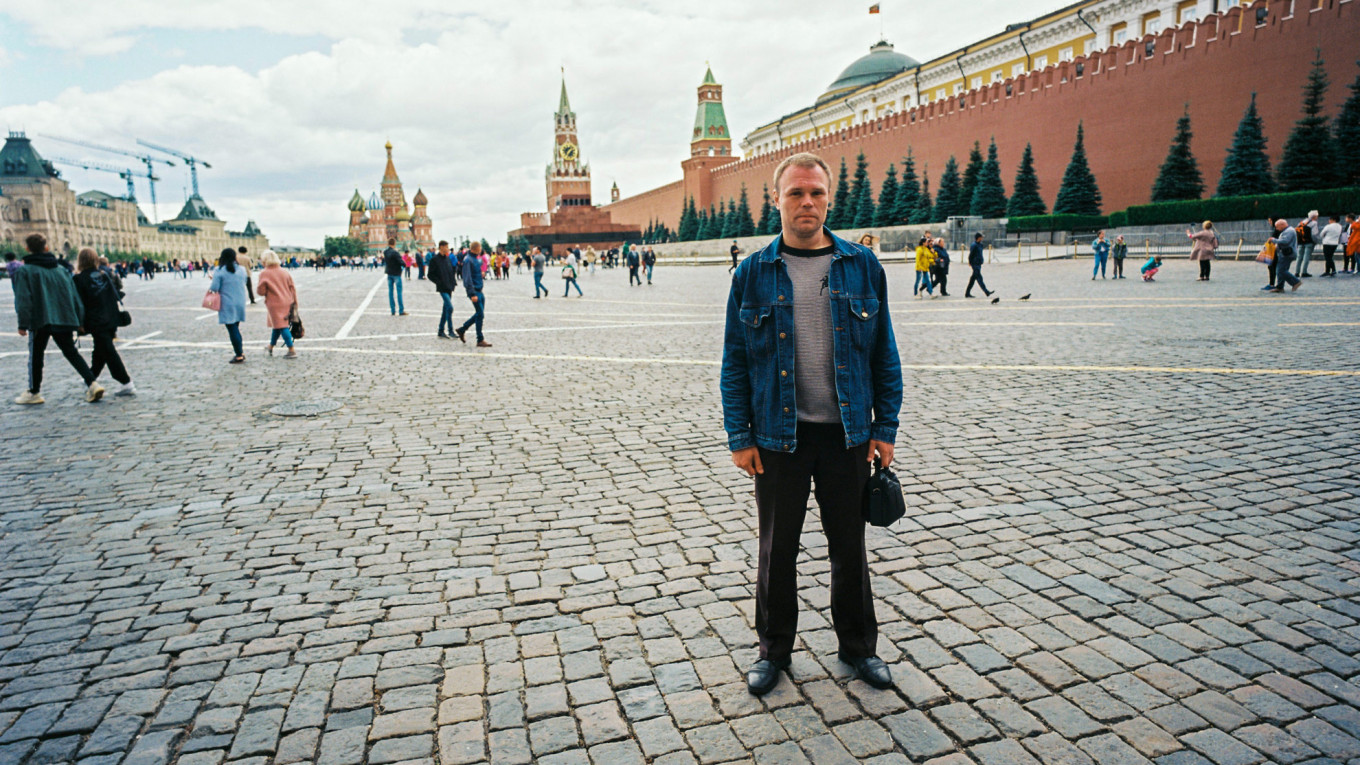Vitaly, 42 years old
I was born and live in Reutov, Moscow region. I collect coins. At five I found my first coin while playing in a sandbox in kindergarten. I remember seeing it for the first time: five zlotis with a hole inside, in a doughnut shape. Somebody must have worn it on a keychain or around their neck. At school I learned that a sister of my classmate collected coins, too. Through this acquaintance I added some more coins to my collection and a tsar banknote from the period of Nicholas II. I thought, “Wow, it is so beautiful!” and got addicted to it.
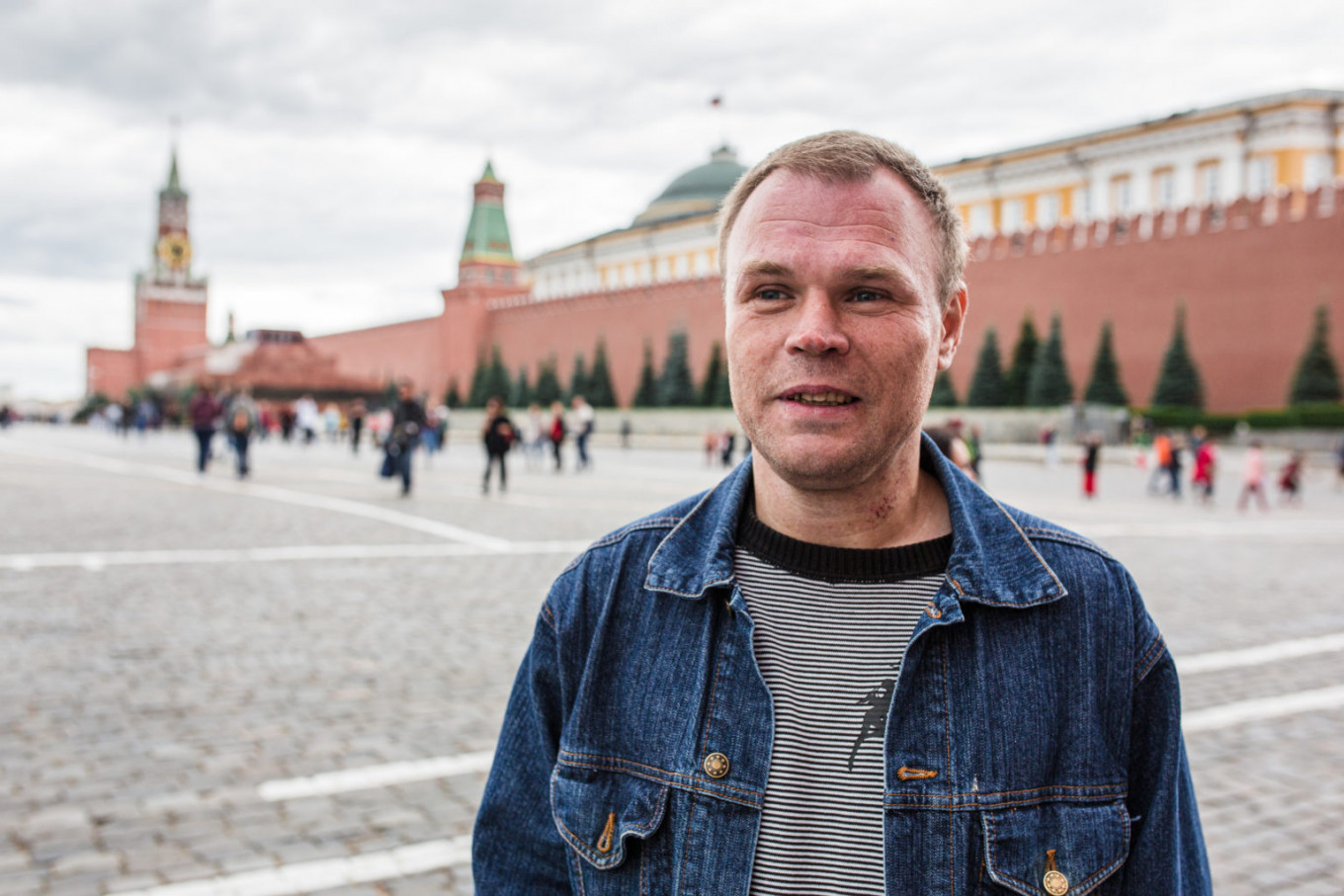
I didn’t like school. There were many things I didn’t like about it, especially having to wear a uniform and to study the subjects I hated. I am an absolute dummy in math. I didn’t like sciences: chemistry, geometry. I liked humanities more. I liked history, I always had As and Bs in it.
I studied accounting at vocational school number 90 in Reutov. Everybody thought I am a future accountant, but it just didn’t work out. I attended university to study auditing and economics, but didn’t finish it. It led to nothing good. In my lifetime I worked as an accountant for three days in total. I saw how much paperwork it was, how much I needed to sort out, and I quit. Now I think I should have stayed in that job.
In the 90s I earned my living by helping people move. I owned a GAZelle [Editor’s note: Russia-produced light pick up truck] and put leaflets up on houses. People would call me and I helped them move food and furniture. The economic situation was not the best, and in 1999 I sold my car. At the moment I am unemployed, I don’t have any means to make a living. I occupy myself exclusively with collecting coins. My mother approves of this hobby. The most important thing for her is that I keep myself busy instead of just pointlessly hanging around.
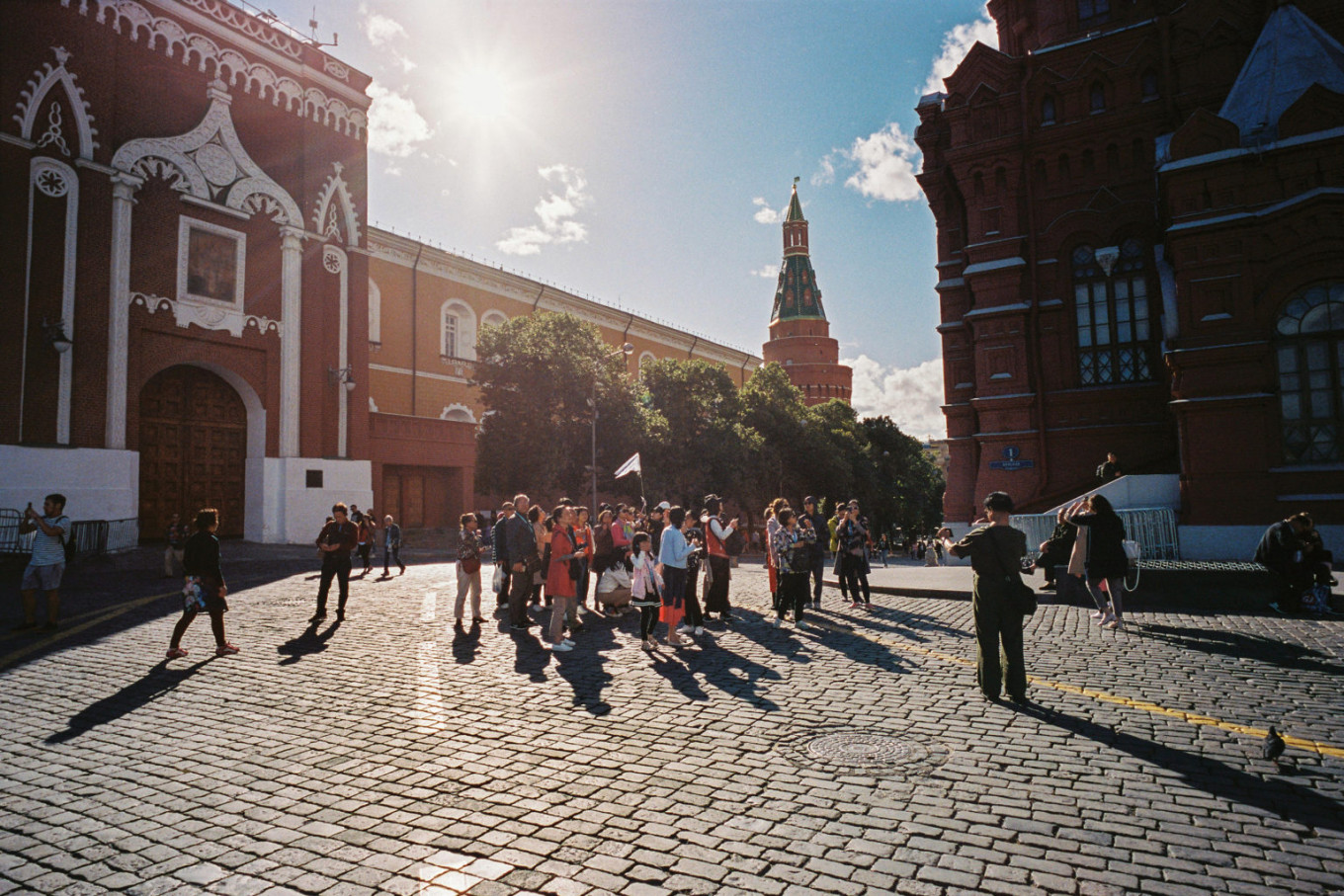
I came up with a way to collect coins during the FIFA World Cup in Russia. There were so many foreigners in Moscow. I still remember June 19 when Mexico won… all of Red Square was in the fans’ green colors. First I came up to them and asked if they wanted to exchange. Some gave me a couple of coins, others were saying that they didn’t have change or didn’t understand what I wanted. Then I tried writing down a short note on a piece of paper in different languages, asking to exchange coins. Since then, I have been handing foreigners this note to read it in their native language and they decide whether they want to exchange or not. I started asking them while they waited in the line to Lenin’s Mausoleum. Where else can one find so many foreigners in one place in Moscow where they are not rushing and can take time to read my note?
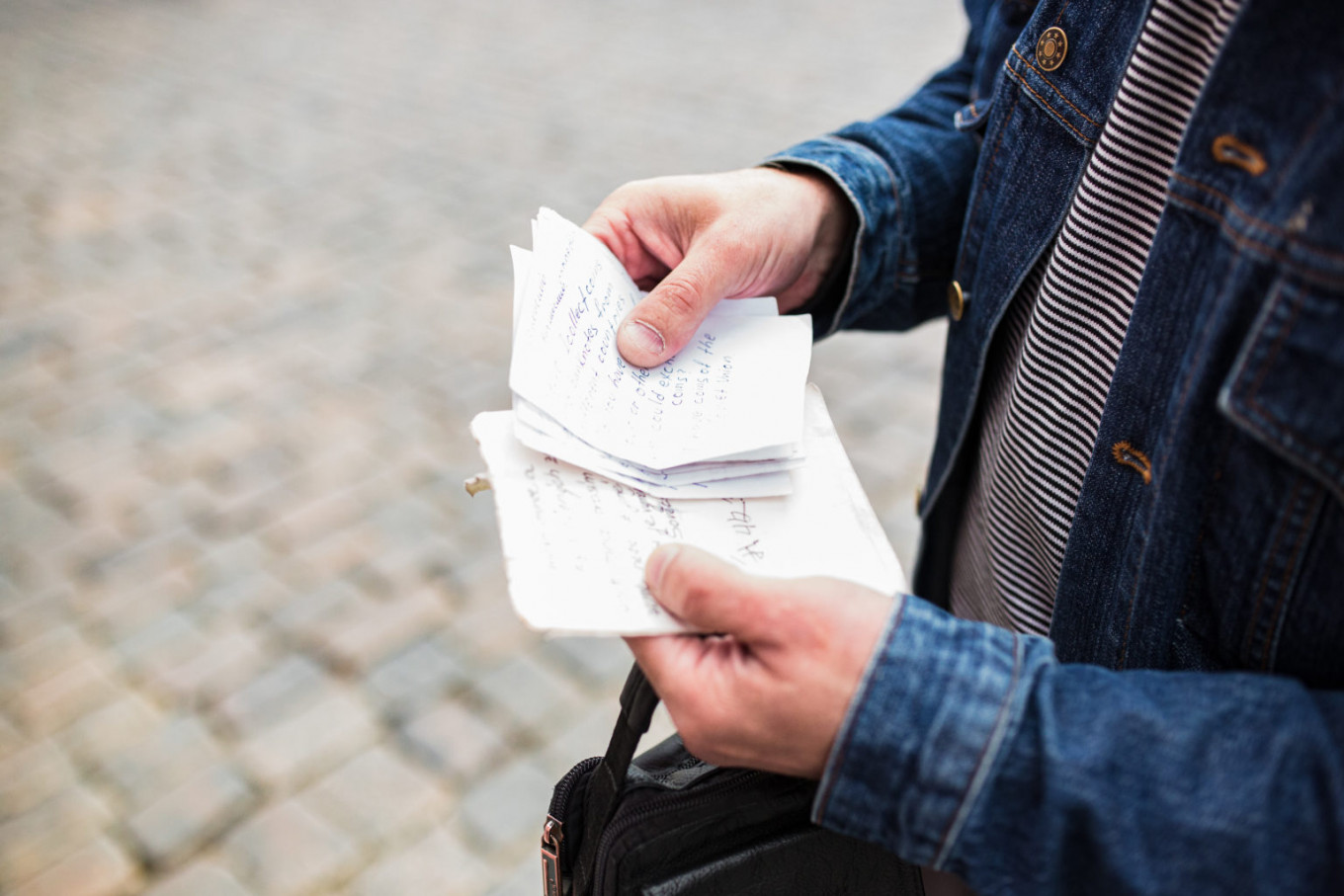
First I was offering expensive 10-ruble jubilee coins. Then I had another idea. I have 10 kilos of Soviet coins at home, so I decided to give it a try and see if exchanging cheaper coins would work. I brought that change here, to Red Square and it worked! I started coming every day, even in winter, when it’s 20 degrees below zero. If I come, I stand on Red Square very determined not to go back home without new items for my collection.
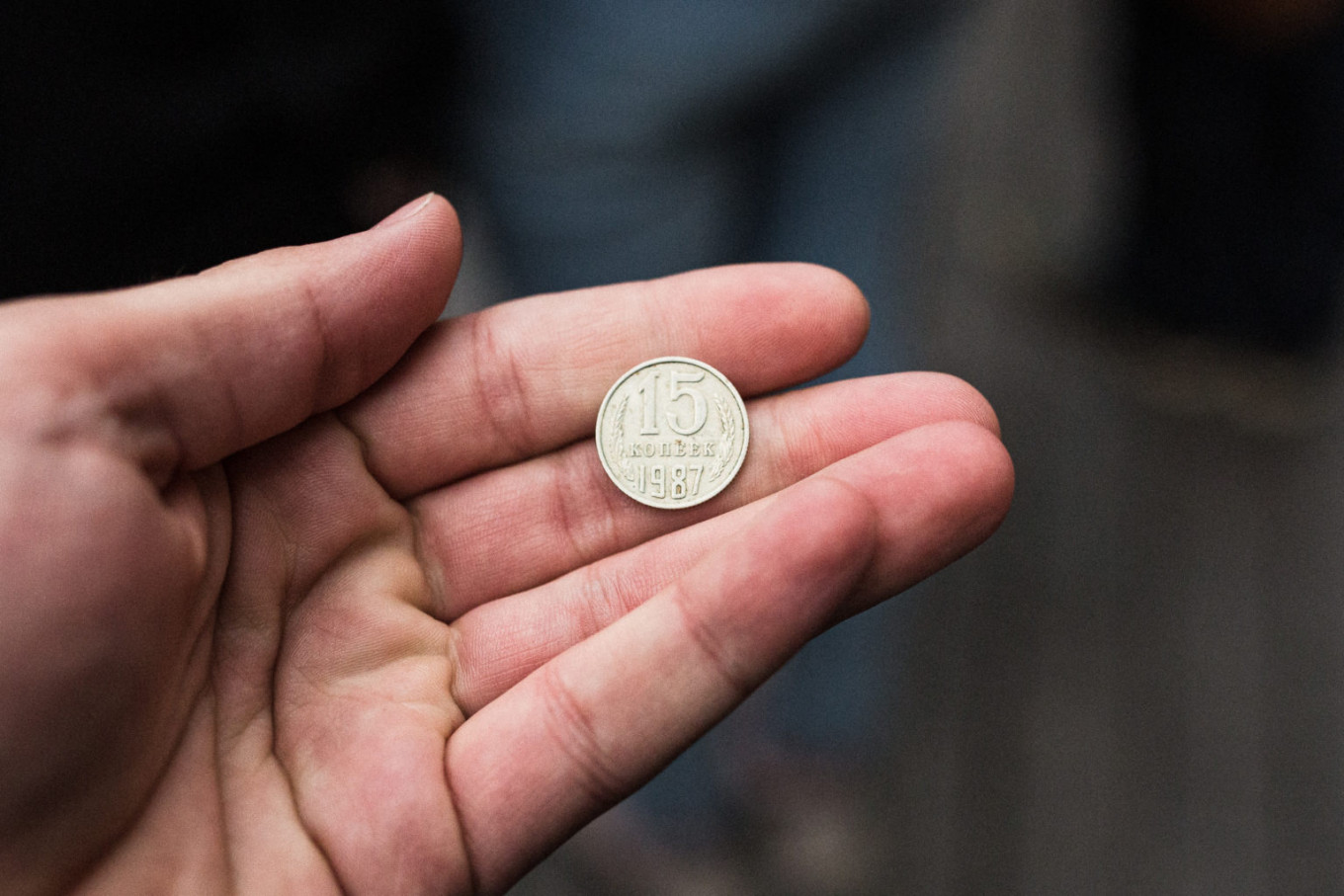
Foreigners react differently when I talk to them. Some are interested, and some just don’t care about coins – they say they don’t have change with them. That makes sense. Why would anybody carry around change from their home country while travelling abroad?
Sometimes I buy coins. Recently I bought a 1924 silver ruble with with Worker and Kolkhoz Farmer for 1000 rubles [Editor’s note: a common symbol in socialism that – in 1937 – was made into the famous sculpture of two figures, with sickle and hammer, raised over their heads, for the Paris World Fair. It is now in Moscow.]
Everything is changing now. During Soviet times people could not travel abroad, and if they did, it was mostly to countries of the socialist bloc, like Hungary, Bulgaria, Poland, or the Czech Republic. One could change stamps for coins from those countries. Then people started exchanging wrappers from chewing gum, and I did that too. I have never found any interesting coins myself, but my uncle, who lives in Pereslavl Zalessky, found a quarter-kopek piece from 1734 and gave it to me.
I have never travelled abroad, I have only been to Ukraine one time. But by collecting coins, I study the geography and history of these states. Coins are very representative of the region they are from. It is fun to look at who made it to their design: sometimes animals, fish, fauna, flora, flowers. Some coins have contemporary events depicted on them. It could be the conquering of foreign land or have a sports theme: champions or competitions.
Sometimes I can’t help thinking. If the coin is not new, it was used… Who held it, what kind of a person was it? Just curious. Sometimes you hold a Russian coin from tsarist times and you get a feeling that this coin breathes history. It is saturated with an ancient spirit.
There are several thousands items, coins and banknotes, in my collection from 196 countries. 180 of them are countries with existing currency. Sixteen of them have disappeared. It’s Czechoslovakia, the German Democratic Republic… They disappeared, but their money stayed on. The oldest coin in my collection is a quarter-kopek piece of Peter the Great of 1707. Before 1725, coins had the years engraved in letters, it was called Slavic. And after 1725 Peter the Great introduced a civil year with numbers.
I have almost all American quarters. I am only missing a quarter from Northern Mariana Islands. I have quarters of all the national parks, except for the last two. It is difficult to get them at the moment. They produce five coins a year. In 2019 I collected three and have two more to go.
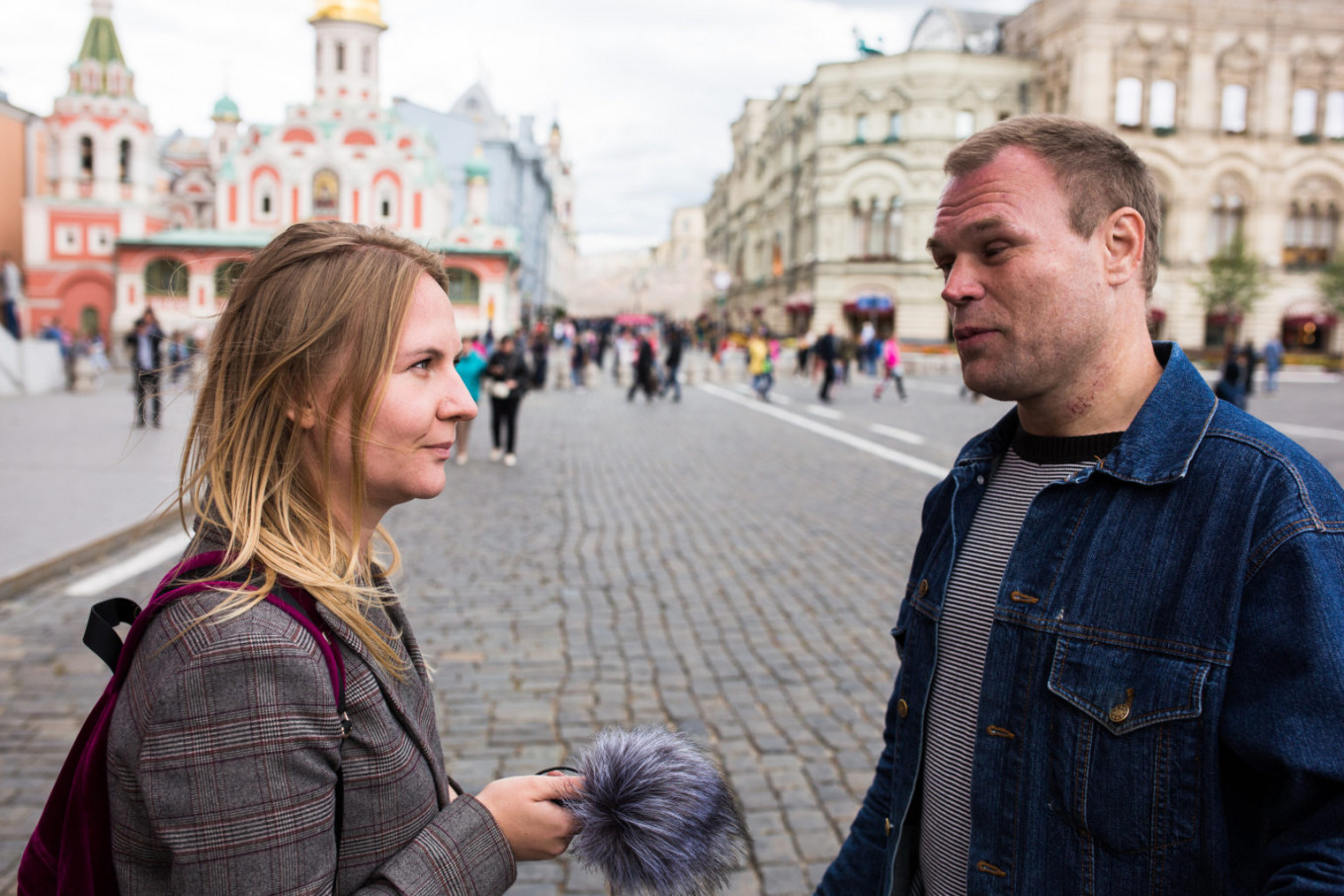
I specialize in coins of England and the Commonwealth: Isle of Man, Gibraltar, Jersy, Guernsey, Fiji. England had many colonies. I also have Cypriot coins with portraits of Elizabeth or with George V and George VI, but I like coins with Elizabeth better. One of my friends says, “You have a crush on Elizabeth.” No, I just like coins with her. And George is kind of ugly - he is bald. It’s easier to acquire coins with Elizabeth, as some are still in use.
There are coins that would never make it to my collection. There are only a couple of those in this world and they all are in museums. For example, a coin of Anna with a chain from the time of Anna Ioannovna’s rule, 1730-1740. Such a coin is worth 15 million rubles, there are only a handful of them.
I think coins will continue to exist. I don’t think credit cards will push them out completely. Not everybody can use cards. What about the generation of our grandparents? They will still prefer coins to cards…
This story was first published by Mesto47. You can read this and other stories or listen to a podcast on their site.
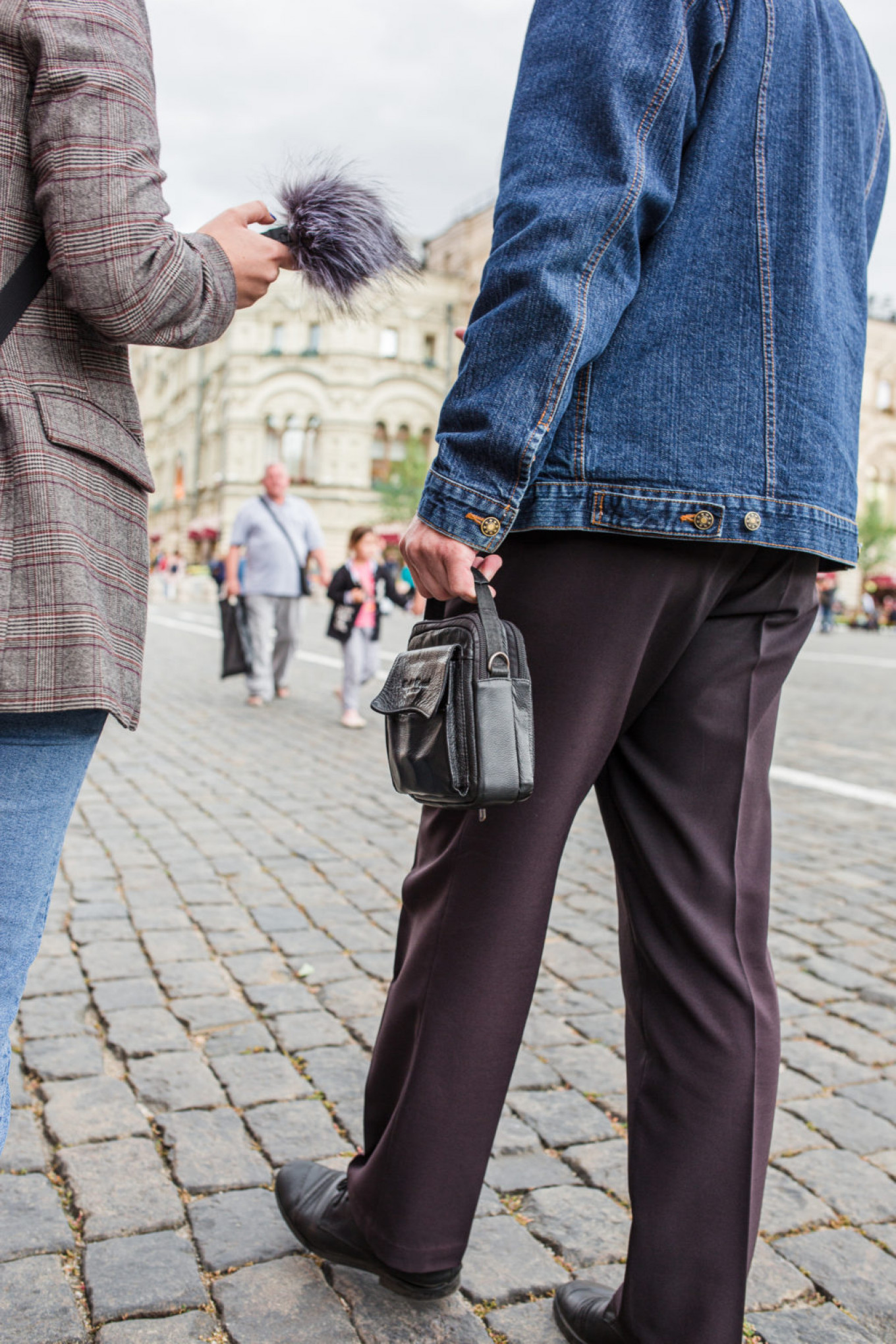
A Message from The Moscow Times:
Dear readers,
We are facing unprecedented challenges. Russia's Prosecutor General's Office has designated The Moscow Times as an "undesirable" organization, criminalizing our work and putting our staff at risk of prosecution. This follows our earlier unjust labeling as a "foreign agent."
These actions are direct attempts to silence independent journalism in Russia. The authorities claim our work "discredits the decisions of the Russian leadership." We see things differently: we strive to provide accurate, unbiased reporting on Russia.
We, the journalists of The Moscow Times, refuse to be silenced. But to continue our work, we need your help.
Your support, no matter how small, makes a world of difference. If you can, please support us monthly starting from just $2. It's quick to set up, and every contribution makes a significant impact.
By supporting The Moscow Times, you're defending open, independent journalism in the face of repression. Thank you for standing with us.
Remind me later.


